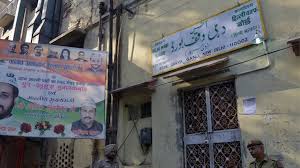Waqf:

A contentious bill to amend 44 sections of the Waqf Act of 1995 – including changing it ensure representation of non-Muslim individuals and Muslim women in central and state Waqf bodies – is likely to be tabled in the Lok Sabha.
- Under the Waqf Act of 1954, a Waqf refers to a property dedicated in the name of God for religious and charitable purposes.
- Legally, it is the permanent dedication by a Muslim of any movable or immovable property for purposes recognised by Muslim law as pious, religious or charitable.
- A Waqf can be established through a deed or instrument, or a property can be considered a Waqf if it has been used for religious or charitable purposes over a long period.
- The proceeds from Waqf typically fund educational institutions, graveyards, mosques, and shelter homes.
- Once a property is designated as a Waqf, it becomes non-transferable and is detained perpetually as a charitable act toward God, essentially transferring ownership to God.
- Waqfs can be either public, serving charitable ends, or private, benefiting the property owner’s direct descendants.
- To create a Waqf, one must be of sound mind and hold valid ownership of the property.
- The creator of a Waqf, known as the Waqif, does not have to be a Muslim, as long as they profess belief in Islamic principles.
- Waqfs in India are regulated by the Waqf Act, 1995.
- A survey commissioner lists all properties declared as Waqf by conducting local investigations, summoning witnesses and requisitioning public documents.
- The Waqf is managed by a mutawali, who acts as a supervisor.
- Unlike trusts established under the Indian Trusts Act, 1882, which can serve broader purposes and be dissolved by the board, Waqfs are specifically for religious and charitable uses and are intended to be perpetual.




